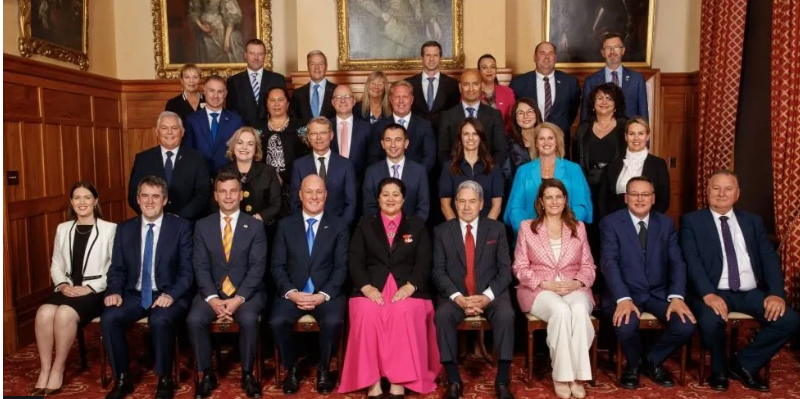Yesterday, New Zealanders welcomed their new Prime Minister, Christopher Luxon, and his two deputy prime ministers, Winston Peters and David Seymour, who will each serve half a term. Shortly after, news began to circulate about what the new coalition government promise to deliver for its people.
Unfortunately, the revelation of these two plans has garnered negative feedback toward the new government. Critics argue that these decisions may have repercussions on various fronts, from public health to the overall well-being of the population.
Job cuts in the public sector is one of the goals mentioned to cut down spending and bring down inflation. Duane Leo, a representative from the PSA Union, expressed concerns that the proposed policies would regress New Zealand. He criticised it as outdated and backward, highlighting worries about the disorganised and unstructured approach by the new government. According to Leo, there is a lack of substance, with no evidence of the promised analysis involving government departments. He emphasised that the issue extends beyond mere efficiency concerns, characterising the proposals as deep cuts not only to public service workers but also to the services they provide to the public.
The smoking ban that inspired a similar policy in the UK has been scrapped, turning New Zealand from a global leader in promoting public health to a poor example for its own citizens and the world. The law, designed to curb youth smoking by banning cigarette sales to anyone born after 2008 in NZ next year has sadly been abandoned. It appears that the new government is more focused on financial interests than the future and health of the upcoming generation. Health experts in the country have strongly criticised this abrupt change of plans. Professor Richard Edwards, a public health expert expressed this as “appalled and disgusted” by the change in policy which he had previously described as “world-leading” and “absolutely excellent health measures”.

However, the unexpected shift in policy surprised many within the country, given that Luxon’s National Party did not address the possibility of reversing the law during their election campaign. The announcement of this decision came from the new finance minister, Nicola Willis, who revealed that during government formation negotiations, two smaller parties, ACT and New Zealand First, insisted on eliminating the smoking ban as a condition for joining the National Party coalition. The new government justified the decision by stating the need to find resources for tax cuts in the country.
However, Professor Robert Beaglehole, chair of New Zealand’s Action for Smokefree 2025 committee, criticised the approach of raising funds through cigarette sales, considering it to be ethically wrong. “The idea that tax cuts might be funded by individuals who continue to smoke is truly alarming,” he expressed.
Recent research conducted by New Zealand’s Public Health revealed that the Smokefree policy, if implemented, could have saved the country’s health system approximately 1.3 billion New Zealand dollars over the next two decades.
New Zealnd has a population of 5.2 million people. Of this population 331,000 individulas smoke daily, including 121,000 from the indigenous Maori community. Health problems related to smoking are most prevalent among Maori people, and the decision has been strongly crtitised by a national Maori health organisation, as a setback to the health and well-being of all New Zealanders.
Surely, the government’s initial week in office is a disappointment. The lack of excitement and the prevailing frustration among citizens suggest a rocky start, with potential for more challenges ahead. The failure to communicate certain policy shifts effectively, such as the abrupt abandonment of the smoking ban, leaves citizens questioning the government’s transparency, and raises concerns about hidden agendas.





